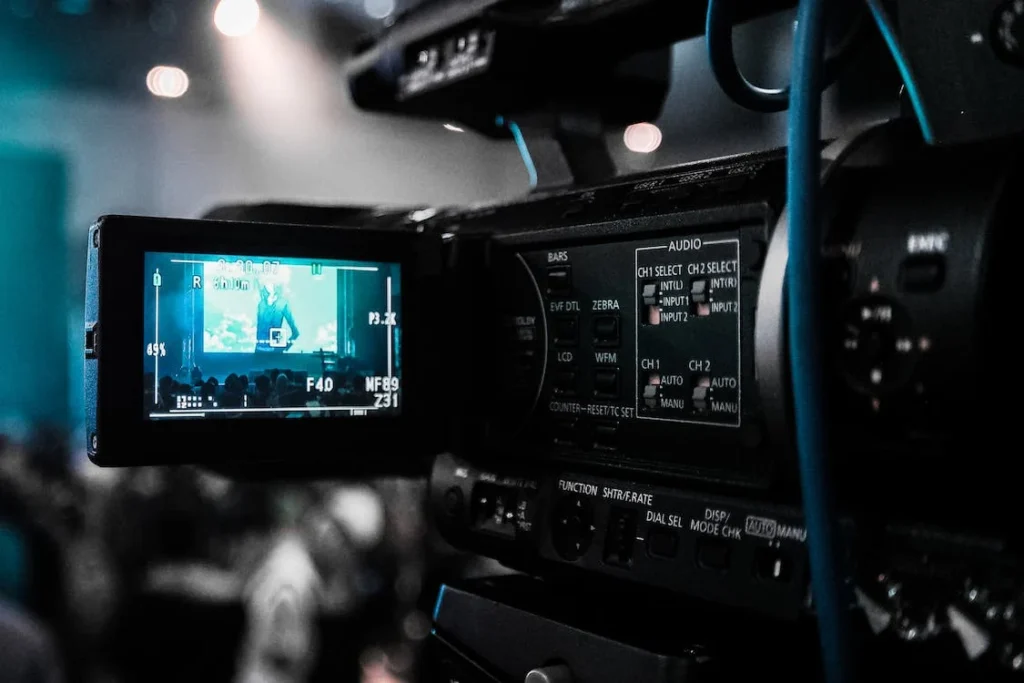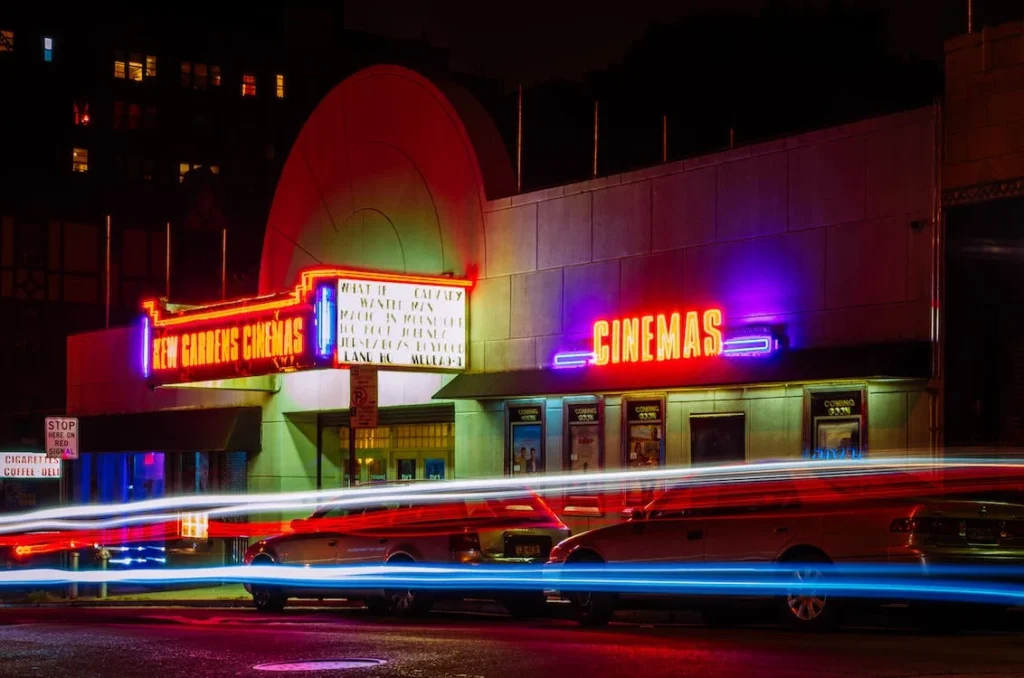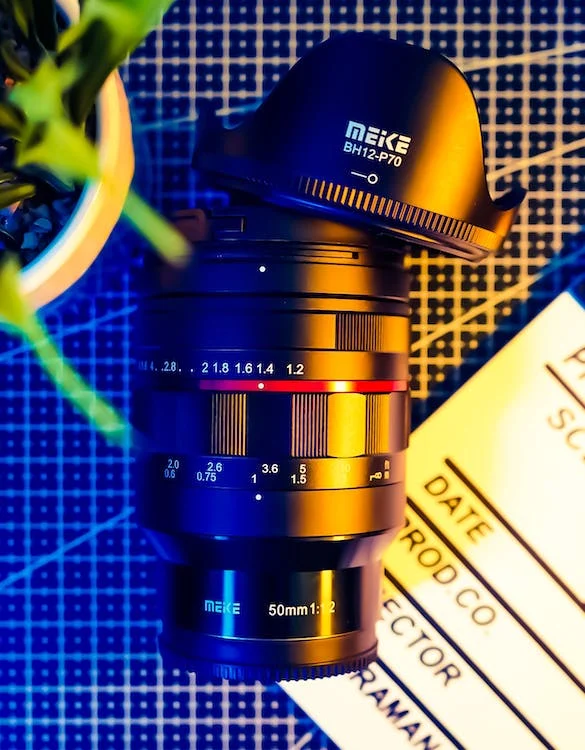How AI is Transforming the Landscape of Independent Filmmaking
Table of Contents
- Introduction: The Dawn of AI in Filmmaking
- How AI is Transforming the Landscape of Independent Filmmaking
- AI’s Role in Scriptwriting and Pre-production
- AI in Post-production and Distribution
- FAQs about AI in Film
- Conclusion: The Future of AI in Independent Filmmaking
Introduction: The Dawn of AI in Filmmaking
The world of independent film making is being revolutionized by a new player: Artificial Intelligence (AI). AI has been seeping into various industries for years, and the film industry is no exception. From script writing to post-production and distribution, AI is changing the way films are created and viewed.
While Hollywood has the resources to adopt new technologies quickly, independent filmmakers face unique challenges. However, AI offers cost-effective and efficient solutions that could level the playing field.
How AI is Transforming the Landscape of Independent Filmmaking

In the realm of independent film making, AI is creating a paradigm shift. It is transforming various aspects of film making, making the process more efficient and accessible. Here are some ways AI is doing so:
Budgeting and Scheduling: AI tools can predict the cost and time frames of film production, enabling independent filmmakers to plan more effectively.
Casting and Auditions: AI can help find the perfect cast by analyzing numerous actors’ profiles and matching their skills and appearances to the director’s vision.
Visual Effects (VFX): AI can streamline the VFX process, making it more affordable for independent filmmakers who previously may have found the costs prohibitive.
Film Editing: AI algorithms can edit films based on certain criteria, reducing the time and effort required in manual editing.
Each of these transformations has a profound impact on the way films are made, opening up new avenues for creativity and innovation in independent film making.
AI’s Role in Scriptwriting and Pre-production

One of the most exciting applications of AI in film making is its potential in script writing and pre-production. AI tools can analyze large databases of movie scripts and provide insights into what type of content is likely to be successful.
Additionally, AI can assist with story creation. For instance, an AI algorithm could generate a basic storyline based on certain inputs, giving writers a starting point from which to develop their scripts.
In pre-production, AI can aid in location scouting. By analyzing a script and understanding its requirements, AI can suggest suitable filming locations. This can save a significant amount of time and resources.
AI is also being used for casting. Machine learning algorithms can analyze an actor’s performance in auditions and compare it to the director’s requirements, helping to identify the best fit for each role.
These advancements are particularly beneficial for independent filmmakers, who often work with limited resources. AI can help streamline the pre-production process, allowing filmmakers to focus on the creative aspects of their projects.
AI in Post-production and Distribution

AI’s influence extends to post-production as well, particularly in areas like editing and visual effects. AI algorithms can analyze hours of footage and identify the best shots, significantly reducing the time spent on editing.
In visual effects, AI can create realistic CGI faster and more affordably than traditional methods. This capability can be particularly useful for independent filmmakers, who often have to work within tight budgets.
When it comes to distribution, AI can predict audience preferences and behavior, helping filmmakers to target their films more effectively. AI can analyze demographic data, viewing habits, and social media trends to determine the best distribution strategies.
Furthermore, AI can assist with marketing by determining the most effective trailer cuts and promotional strategies. This could be a game changer for independent filmmakers, who often struggle with getting their films seen by a wider audience.
FAQs about AI in Film
Q: How has AI changed the film industry?
A: AI has revolutionized several aspects of the film industry, from script writing and pre-production to editing, visual effects, and distribution. It’s made these processes more efficient and cost-effective, which is particularly beneficial for independent filmmakers.
Q: How is AI impacting the media landscape?
A: AI is transforming the media landscape by enabling more personalized and targeted content delivery. It’s helping predict audience preferences, optimize distribution strategies, and create more engaging promotional material.
Q: How will AI change video production?
A: AI is expected to make video production more efficient and cost-effective. It’s already being used to streamline editing, create visual effects, and assist in script writing. As AI technology continues to evolve, we can expect it to play an even larger role in video production.
Q: Is AI going to replace filmmakers?
A: While AI can automate certain tasks, it cannot replace the creativity and vision of human filmmakers. AI is a tool that can help filmmakers work more efficiently and effectively, but the art of storytelling will always require a human touch.
Q: Can AI write a movie script?
A: AI has the capability to generate basic storylines and can analyze scripts to provide insights. However, the nuances and complexities of a full-fledged movie script still require a human writer. AI can be a valuable tool for scriptwriters, providing a starting point or offering analytical insights, but it’s not about to take over the creative process.
Conclusion: The Future of AI in Independent Filmmaking
Artificial Intelligence has already made significant inroads into the world of independent film making, and its influence is set to increase in the years to come. From streamlining pre-production to creating cost-effective visual effects and enhancing distribution strategies, AI is becoming an indispensable tool in a filmmaker’s arsenal.
However, AI is not a replacement for human creativity. While it can automate certain tasks and provide valuable insights, the art of storytelling fundamentally relies on human emotion, creativity, and intuition. AI is here to assist, not to replace.
The future of independent film making will be a symbiosis of AI technology and human creativity. As filmmakers learn to harness the power of AI, we can expect to see more innovative, engaging, and cost-effective independent films.
The impact of AI on independent film making is a fascinating topic, and we’ve only just scratched the surface. As technology continues to evolve, who knows what the future might hold? One thing is for sure: the intersection of AI and film will be an exciting space to watch.



Your point of view caught my eye and was very interesting. Thanks. I have a question for you.
I don’t think the title of your article matches the content lol. Just kidding, mainly because I had some doubts after reading the article.
Your point of view caught my eye and was very interesting. Thanks. I have a question for you.
Can you be more specific about the content of your article? After reading it, I still have some doubts. Hope you can help me.
I don’t think the title of your article matches the content lol. Just kidding, mainly because I had some doubts after reading the article.
Thanks for sharing. I read many of your blog posts, cool, your blog is very good.
I don’t think the title of your article matches the content lol. Just kidding, mainly because I had some doubts after reading the article.
I don’t think the title of your article matches the content lol. Just kidding, mainly because I had some doubts after reading the article.
Your point of view caught my eye and was very interesting. Thanks. I have a question for you.
Thanks for sharing. I read many of your blog posts, cool, your blog is very good.
Your article helped me a lot, is there any more related content? Thanks!
Your point of view caught my eye and was very interesting. Thanks. I have a question for you.
I don’t think the title of your article matches the content lol. Just kidding, mainly because I had some doubts after reading the article.